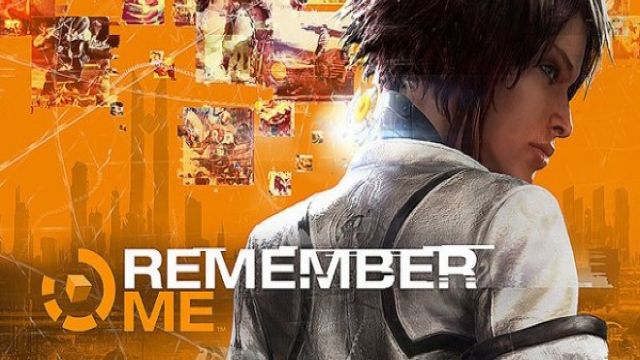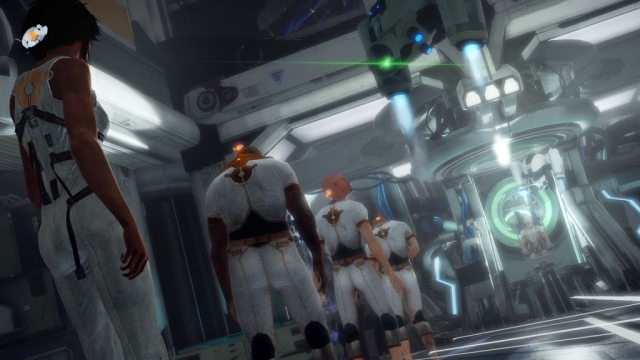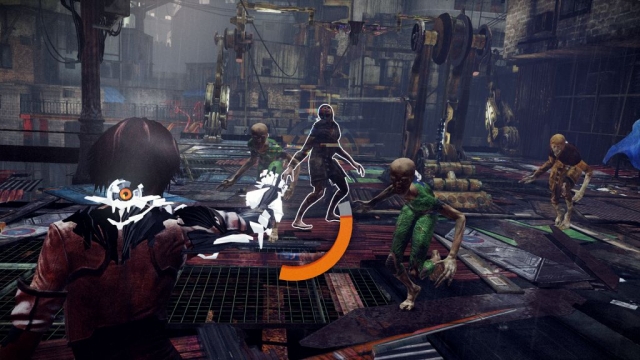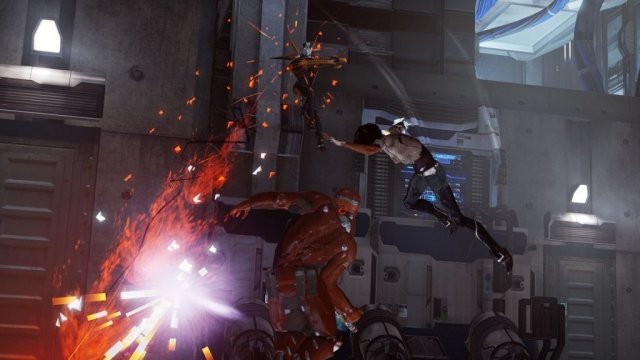Remember Me

I had a conversation a while ago about film history and how it relates to video games. A lot of people seem to think that the current software generation is roughly analogous to the 1940s, where the medium got its first big signature works and found its teeth. I’m inclined to think it’s closer to the ’60s and ’70s, where the medium is fully ingrained in the public consciousness and its limits are being pushed by a small group of experimental creators.
If you accept that premise, then guys like David Cage are the standard-bearers for gaming’s equivalent of the French new wave. Remember Me fits cleanly into that paradigm. It’s one of those games that is distinctly not as interested in being a game as it is a sort of immersive sense of place.
Remember Me is set in 2084 Neo-Paris, the city having been rebuilt after its destruction in a European civil war a couple of decades ago, and everyone in the city comes factory-standard with a personal augmented-reality device called a Sensen. It’s used to project billboards, warning signs, menus, shop windows, you name it; without the Sensen the world would look surprisingly empty.
The Sensen’s main use is to allow people to directly access their own memory center. They can download new, happier memories for themselves, delete or remove unpleasant ones, and if they’re not careful, open themselves up to an exciting host of new brain disorders. People who are imprisoned for capital crimes have their memories erased entirely for the duration of their sentence, leaving them no idea of who they are and nowhere to escape to.
Nilin is one of a select few individuals who can “remix” a target’s memories, causing them to remember crucial moments in their lives as if they’d proceeded very differently. She’s a brainwasher for hire and a member of the underground “Errorist” movement, which seeks to overthrow the existing system and eliminate the easily-abused memory trade.
At the start of the game, the Errorists are almost all in prison and Nilin herself almost goes with them. With most of her memories gone, she’s forced to play along with a mysterious stranger in order to figure out who she is and why she’s being pursued by most of the cops in the city.
When you’re actually playing Remember Me, it’s a strange blend of the sort of platforming popularized by Prince of Persia and Uncharted with a melee combat system that owes a lot to Batman: Arkham Asylum. You can dodge at any time with the A button and put together combos with X and Y.
Nilin only learns a total of five combos, but what those combos actually do is up to you. As you progress through the game, you can gradually unlock “Pressens,” which are buttons for each combo that give it a secondary effect. With the right Pressens, successfully landing a combo can cause limited health regeneration, speed up the cooldown on your more powerful moves, and inflict heavier damage. A big part of the late game involves rearranging your Pressens within your preset combos to achieve specific goals, such as assembling a reasonably powerful three/five-hit string that also regenerates enough of your health to let you survive an encounter with an enemy that reflects damage done to him.
That makes it sound more complex than it is, and there are five different “bomb” abilities meant to help you get out of a jam, but the combat is not Remember Me’s strong suit. It’s not exactly phoned in, but it’s clearly not what the developers cared the most about. It’s often frustrating, as enemies surround you and smack you out of even short combinations right after you’ve finished a dodge, and it relies heavily on repetition and timing. More variety in the possible attacks, such as throws, counters, or the ability to use melee weapons would’ve given it a lot more depth. It’s not a bad system. It’s just not as good at it could be.
I wanted to like Remember Me more than I do, but at the end of the day, the parts of it that you actually play are interesting but don’t live up to their potential. Its design, music, world-building, and even parts of its philosophy are great, don’t get me wrong; it’s a vivid, well-imagined world with a short but decently-written plot.
I’d like to see it get a sequel, one that ideally revises its gameplay but doesn’t sacrifice its design to do it. Remember Me isn’t a bad long weekend’s entertainment if you’re willing to give its world a chance to draw you in, but it really just isn’t enough of a game for me to give it an unqualified recommendation.
Reviewed By: Thomas Wilde
Publisher: Capcom
Rating: 75%
——————————————————————————–
This review is based on a copy of Remember Me for the Xbox 360 provided by Capcom.
 Game Over Online
Game Over Online





















